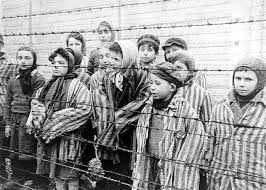It’s The Principle
We have heard it before: “It’s the principle of the matter”. Do you have any principles, or has life become so gray that principles are out of style?
What if everyone (or at least nearly everyone) actually agreed on an idea about how we should behave? Does that make the idea a principle?
Consider:
If someone has a crime committed against them, do they then have the “right” to commit a crime against another?
Take a young woman, perhaps 19 years old, who is just getting her life started. She drives to an ATM to get money from her bank account to pay her rent. While she withdraws money, she is confronted at gun point. The perpetrator forces the young woman to hand over all but $10.00 from her account. The young woman no longer has money for her rent, utilities, or groceries.
Does she now have a license to go and rob someone else? The poor thing. What other choice does she have? So she goes and steals from someone else, who then also has a license to steal. And so on, and so on, and so on…

If we accepted the idea that she has the “right” to rob from another, we set up a culture that could never work. Everyone would simply take what they wanted. If everyone simply takes what they want, why would anyone actually produce anything? If nobody produces anything, there is nothing to take. That society would not really be a society. Imagine the violence in such a society. The crime in such a society would multiply like a virus through the culture. A deadly virus.
It is clear that a society that allowed for the justification of taking from others would not last for long. Thus, it is a PRINCIPLE that we do not take from one another. Principle: We do not steal. We also identified a second principle: A bad thing happening to someone does not give them a license to do bad things to others.
Do these principles apply to your thinking?
Think about that question. Do you apply these principles to your life? If you said “yes” please read on.
If you said “no” please reconsider your life.

Principle: It’s Better to Give Than Receive
Do you agree that it is better to give than receive? Do you live your life accordingly?
We all agree that it is better to give than to receive. Interestingly, this Principle is directly tied to the the first Principle: We do not steal because stealing is like saying that it is better to receive than give.
But do we live our life accordingly?
Applying our principles to situations can keep us from breaking our own moral standards. We have grown up in a world that sells us the “good life”. Look at that hot car, and want it. Go on that amazing vacation. Be the big boss and tell everyone exactly what to do.
The picture below shows champagne being served. Our principle of “it’s better to give than receive” says that we should want to be the server, but we all have been trained to want to be among those being served. We would all rather be the person receiving the champagne.
So which is it? Serve, or be served? And how do we live our lives?

Just like the stealing issue: If everyone is being served, who is doing the serving? Answer: Nobody of course. Society can’t work If we all demand to be served. Just like society can’t work if we all steal from each other.
If the “currency of the realm” changed from the fancy car, home, trip, clothes etc. to how much we served one another, how different would the world be right now? Not at some future euphoric time, but today. Right now.
Do you agree with the Principle: It is better to give than to receive? Read on…
What is Love?
We might think of Love as a silly look on our face when that special someone happens to walk by. When we think of love that way, we limit the unlimited nature of Love. When we think of love as a silly look on our face, love becomes something that happens to us.
Love isn’t something that happens to us: Love is something that we happen to do. Love is our greatest gift. Love is a choice. Love is action. Love takes the principle “It is better to give than to receive” to it’s logical, and beautiful conclusion. Love is giving oneself to another. And Love as a gift of the self requires sacrifice. We all understand that if a person gives us their last $10.00 they have given us all of their money. Because their sacrifice is great, the act is great, and far greater than someone giving $10.00 from a stuffed wallet. Although that would still be a nice thing for a person to do, it is not as great of an act because it does not involve the same level of sacrifice.
Love, the action, starts by our thinking about others first and placing their good before our own. The action may be minor, like a favor, or major and life changing like giving our life for another. But Love does not happen if we are thinking of ourselves. If we think only of ourselves we would not risk our life for someone else, we would protect ourselves. Love is selfless action. We may do something for another but expect something back, which some would call “conditional love”. There really is no such thing as “conditional love” because Love is about giving. Any attached conditions change the gift into a transaction. Thus, by definition, “conditional love” is not Love at all, it is more like a contract where we expect to be paid back something.
The greatest act of Love would be to give one’s life for another. To do that is to literally give away everything. That is why we celebrate the fire fighter who dies while saving the child on the third floor. Or the soldier who jumps on the grenade to save others in the foxhole. Or the parents who forgo their hopes and dreams to work all hours to provide a better life for their kids.

Principle: Love is the gift of self
The only thing that can work is, well, work and the spirit of service that is Love. Nothing else CAN work, regardless of what your favorite politician or professor might be telling you. Perhaps we need to live our principles a bit better. Or perhaps a lot better.
If we want a better world we need only follow our principles. But we don’t follow our principles do we? If we are going to be honest, literally NONE of us follow our principles. Why is that? Why is it that NONE of us follow our principles? We know what we are supposed to be doing, yet we choose not to.
Why?
Because in moments of fear, weakness, selfishness, cowardice, or laziness we convince ourselves that actions that conflict with our morals are justified. We convince ourselves that by breaking our own moral code we can take a shortcut, and that it will be easier for us. In short, we lie to ourselves, and it is never easier for us.
Whence then EVIL?
It all seems so simple. We already know our principles, and pretty much everybody on the planet agrees with them. So what is the problem? Why does Evil happen?
Little things are big, and BIG things are little.
Why did the perpetrator steal that poor young lady’s money? What leads us to go not just off track – but the wrong way, running into others as we bash along causing injury?
The answer is that we create any number of excuses for our actions, and dodge the truth to justify our breaking our own principles. This has led humanity to do outrageously Evil things to itself over the course of history. Thinking back, what do you view as the most evil thing humanity has done to itself in history?
Most people think of the Holocaust: Hitler’s “Final Solution”.

Evil Indeed.
Ever wonder how on earth this happened? How did a first world country get to the point where it began exterminating its own citizens based on their race/religion? (interesting that in the case of Judaism both apply)
The image is of young children in a concentration camp in World War II. The atrocities committed by the Nazis were unspeakable. Germany had neighbors turn away while the Jewish Germans were loaded up and shipped away to be exterminated. What kind of EVIL could allow such a thing? Were the Germans of World War II uniquely inhuman?
Of course not. Those folks were just like everyone else. And that truth is more than a little scary when you think about it. Humanity has the ability to commit unspeakable cruelty. That is the entire race: All of humanity. All of us. No exceptions.
But why? Because we have the unique ability to either rise to epic heights of kindness and love, or, choose to take, hate and destroy.
The German people acted on fear, weakness, selfishness, cowardice, and laziness and convinced themselves that all their problems were the Jewish People’s fault. Bigotry 101. A key part of the program was to use bigotry to dehumanize the Jewish people. The same tactic has been used to justify the enslavement and slaughter of “different” people throughout time: Asians in the 1800’s, Blacks in the slave trade, Native Americans, Christian families fed to lions as entertainment. Sadly the list goes on and on. If they are not really human, then it is okay. Oh, and if you disagree, we will execute you as well. Imagine the social pressure that would justify, in the minds of ordinary people, that it was just fine to take the neighbors and their kids away, and kill them. When the war was lost for the Germans, far too many claimed they did not know what was going on. The world rightfully looked on in disgust and horror. But the real horror is knowing that those Germans were just normal people. People just like us.
An estimated 6,000,000 Jewish men, women, and children including infants were killed, many by their own government. Horrific. What could possibly be worse than your government killing you as a toddler, or even an infant? Shouldn’t we be protecting the innocents of our world?
If you have read this far, like most people you agree with the principles listed above.
There is nothing more EVIL that humanity could possibly do than what we did to ourselves in Hitler’s Germany. Right?
But what if the victims were all even younger and far more vulnerable? What if the number of victims was far greater? And what if the those younger victims were not killed by their own government, but by their own mothers?
If you are a “Pro Choice” person and your heart rate is increasing, please take a break and perhaps go to https://TummyMonster.com for some ideas on how to not let that Tummy Monster take you over, and continue your quest for reason and truth.
Principles Applied to a Very Hot Topic: Abortion
What would happen if we applied our principles to abortion?
There are several arguments used in support of abortion:
- “What about rape?”
- “What about incest?”
- “What about risk to the life of the mother?”
- “A woman can do what she wants with her body.”
- “The fetus is not viable.”
- “The fetus is not a human.”
But we have skipped so much of the story…
Consider a 13 year old girl who is about to have her second menstrual cycle. Her 19 year old brother rapes her and brutally beats her in an attempt to kill her to cover his hideous crime. He fails to kill her. She is now pregnant. The ‘logical’ and ‘compassionate’ solution is of course to ‘abort’ the ‘fetus’. Simple enough: Just slice up the ‘group of cells’, vacuum them out and throw them away. After all, why should she suffer any more than she already has. Very compassionate.
Lets get back to our principles. We agreed that the 19 year old did not have a license to steel from another after having been stolen from. That is a cycle that simply CAN’T work. But this is DIFFERENT”! “The crime against her is far greater”! But here is the thing, either we stick to our principles, or we don’t have principles. In the case of the 19 year old steeling from the elderly woman, and least nobody died. The difference between Hitler killing the 3 year old little girl and abortion is that, at least in Hitler’s Germany, the person that was killing you wasn’t your mother. The elective slaughter of ones own child is so much more evil than Hitler’s Germany that, if you attempted to graph Hitler’s evil and the evil of slaughtering your own child on the same sheet of paper, the graph would be maxed out for killing your own child, and Hitler’s Germany would not register on the graph.

Abortion, a sanitized term for the elective slaughter of one’s own child, is the penultimate evil. The only thing that could be worse than slicing your own child into small parts, vacuuming them out of your own body and throwing them in the trash would be to give birth to your child, and then torture your child as long as possible before the child died. That would be the ultimate evil.
There was a time when we valued sacrifice of self for others, especially those unable to help themselves. Especially our own children. “Mothers love” has been supplanted. We sell our women, beginning when they are very young, on the idea that somehow the slaughter of there own child is virtuous. And all this for what? So we can have meaningless sex. The example used makes the point that the key arguments to support electively slaughtering your own child like rape and incest make the act of slaughtering our own child somehow merciful. Somehow virtuous. They are not. They fly in the face of reason, principle, and all that was once understood to be the foundation of goodness in humanity.
What is the upside then? We get to have sex and not have the consequence of sex. But is that really a good thing? We use sex to sell everything from beer to toothpaste. But doesn’t everyone have a different vision of that special someone? A person to spend your entire life with. Someone to have and to hold, till death do you part. How is that working out for us? Since the “sexual revolution” we have seen the destruction of marriages, the family, trust and sanctity eroded away, the spread of disease and the devolving of our society and our future. Like all vice there simply is no upside. The results are in, and they are all bad. All Bad. How could having sex with just anyone and then slaughtering the resulting baby be anything BUT bad?
Perhaps we move back to personal accountability and a goal of meeting the right person, getting married, and then making love. In this model making love is a beautiful act of mutual giving of the self that creates the possibility of the gift of a baby, which would be a joyful event. If you make a baby with someone and you are not thrilled about it and viewing the baby as blessing, you are doing it wrong. And you are missing out on the greatest thing humans can do: create a new human, love that human, and raise them to be a blessing to others. That is how virtues work. Doing it wrong is bad for humanity, but doing it right is good for humanity. Both have lasting impacts either good or bad.
Virtue and Vice
Virtuous acts improve the situations of people far into the future. I think of my mother and father in-laws. Those two wonderful, virtuous people made great choices and sacrifices for their family before I was born. Those choices and sacrifices have and continue to benefit me, my family, and our community. Vice has the opposite effect. Vice negatively impacts you and those around you, reaching deeply into the future.
If you want a better life and world, work on following your principles, which is the foundation of all virtue.